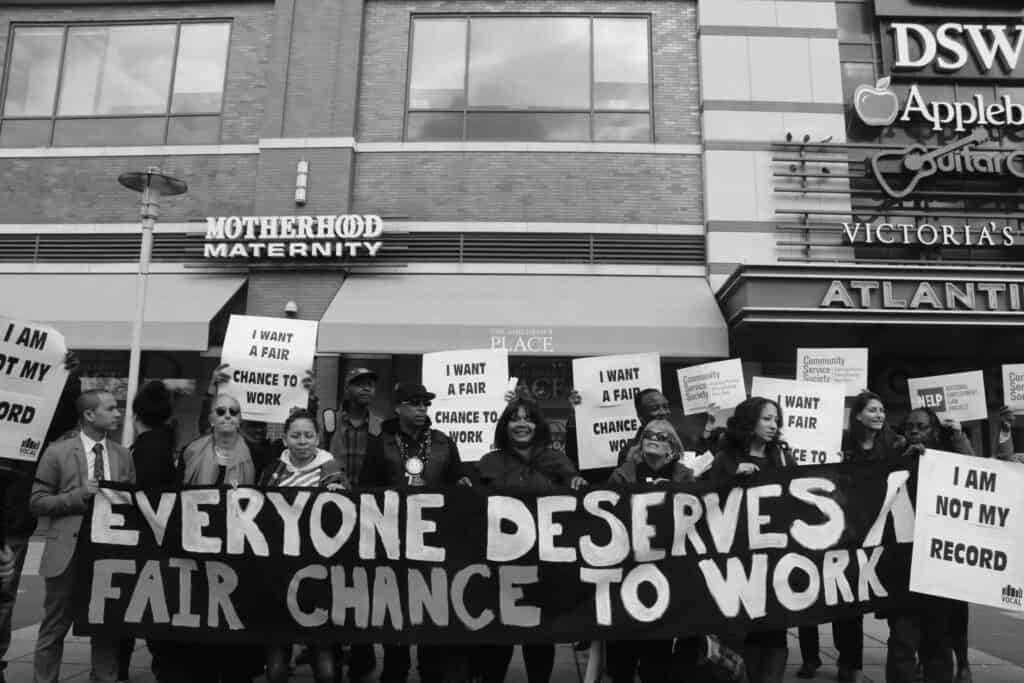
In the middle of a labor market shortage, could second-chance hiring, or the practice of hiring formerly incarcerated people, be the answer to your hiring woes?
According to the Chamber of Commerce, one in three adults – and 77 million Americans – have a criminal record. From a recruiting perspective, that’s a lot of applications that are skipped over if your hiring practices don’t include formerly incarcerated applicants. And all those skipped-over applications result in real loss, with an estimated $78-$87 billion lost in GDP due to not hiring formerly incarcerated workers.
The unemployment rate for formerly incarcerated people is 27%, compared to the unemployment rate for the general population which hovers around 4%.
Applicants who are formerly incarcerated may be looked over, even if they are a good-fit hire, simply due to their incarceration. Second-chance hiring is a way for employers to help formerly incarcerated people and help build a resilient workforce at the same time.
Seeking out applicants with a criminal record may seem absurd at first. After all, some hiring process steps – like background checks – are specifically geared toward weeding out people with criminal records. But with shifting views in society of incarcerated people and their place in the world after incarceration, employers are starting to rethink their hiring process when it comes to criminal records.
What’s more, employees support and even expect their employers to hire people with prior convictions – nearly all (92%) of respondents say they are comfortable working with someone who has a nonviolent criminal record, and 91% think that fair-chance hiring is essential to society, according to an Indeed study.
Second-chance hiring has many benefits for both formerly incarcerated employees and their employers.
For formerly incarcerated people, getting back in the workforce is proven to reduce their chances of being incarcerated again. It can also help improve their quality of life by helping them get reacclimated to society and the general population.
Hiring individuals with criminal records are great for your business, too. They bring a robust and diverse set of skills that can help your business succeed and are less likely to voluntarily quit their job. Some other benefits for the employer include:
There are a few best practices to follow when you’re hiring formerly incarcerated individuals to help yourself, your business and your employees.
Know your legal limits. Like any hiring practice, there are legal implications to following – or not following – certain rules or guidance. Know what you can and can’t ask and follow guidelines set by the EEOC to keep your business safe from legal trouble.
Provide training. Oftentimes, even if an employee with a criminal record has good experience, they may need some help as they adjust back to the workforce. You may want to assign them a hiring “buddy” in the office to help them get the lay of the land and offer support when needed.
Create a framework before hiring. Studies show that employees with a criminal record are just as good – or even better – at their job than those who do not have a criminal record. To help your employee reach their full potential, it’s important to create a framework that offers support both inside and outside the office.Alison RollerAlison Roller is passionate about engaging and informative storytelling through writing and social media. She has been writing since 2018 on a range of topics: politics, higher education, leadership, workplace culture, and diversity, equity, & inclusion. A graduate of West Chester University in Journalism, she is currently pursuing her M.S. in Communications from Syracuse University. When she’s not working, you can find her hanging out with her cat, knitting, and scrolling TikTok.